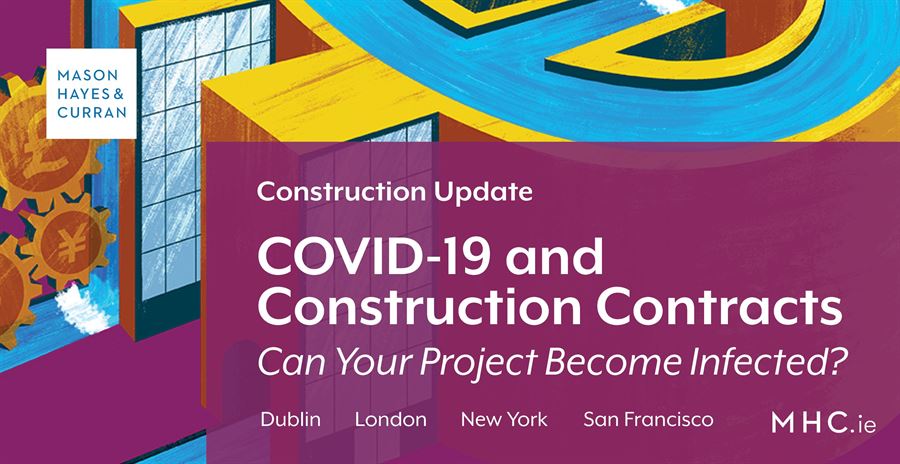
International construction projects naturally have a greater inherent risk from global issues because the supply chain for the required goods and materials often involves a number of jurisdictions. An unexpected and unpredictable event such as COVID-19 may result in workers falling ill, international or domestic travel restrictions, or government quarantine measures with knock-on effects to the supply chain and the progress of construction projects. So the question arises whether contractors impacted by these events would be entitled to contractual relief and, in particular, would COVID-19 be considered a force majeure event within the meaning of a contract?
Force majeure and the classic 4 Step Test
Generally, a force majeure event is an exceptional event which makes the performance of contractual obligations physically or legally impossible, as opposed to merely expensive. Taking the FIDIC form of contract as an example and looking at the definition of the term used in the Plant and Design Build form, it is widely drafted and operates by way of a 4-step test. Each limb of the 4-step test must be met for the event or circumstance to be considered a force majeure or exceptional event.
The test is that it must be an exceptional event or circumstance:
-
That is beyond a party’s control
-
Which could not have been reasonably foreseen before entering into the contract
-
Which could not have been reasonably avoided, and
-
Is not substantially attributable to the other party
FIDIC and force majeure events
FIDIC includes a non-exhaustive list of examples of force majeure events. Interestingly, public health epidemics are not included. However, considering the known circumstances relating to COVID-19 against each limb of this test shows the strength of the argument that a force majeure event may arise. The second and third limbs of the test will become more important for new FIDIC contracts being entered into as long as COVID-19 remains an international concern.
Provide ample notice
In the event a party is, or anticipates being, prevented from performing its contractual obligations as a result of a force majeure event, it is important that it follows the appropriate notification obligations within the relevant contract. The FIDIC form requires a party to provide notice to its counterparty and specify the details of the force majeure event and the anticipated effect within 14 days of becoming aware of the force majeure event. Having given a valid notice, the party shall be excused from performance of the relevant obligations for so long as the force majeure event prevents it from doing so. However, during this time the affected party will be under a duty to minimise any delay as a result of the force majeure event and shall be required to give notice when it ceases.
Termination
If the notified force majeure event results in non-performance for a continuous 84 days or for multiple periods totalling 140 days or more due to the same force majeure event, the FIDIC contract may be terminated by either party upon written notice to the other. Termination shall come into effect 7 days after the termination notice is given. Payment obligations for work done under the FIDIC form shall not be affected by force majeure.
If a sub-contractor is entitled to any relief that is broader than or additional to the FIDIC terms under any contract or agreement relating to the works, this shall not excuse the contractor’s non-performance or entitle the contractor to force majeure relief.
Conclusion
If COVID-19 has resulted in a party being prevented from performing any of its obligations under a contract and that party has sought relief on grounds of force majeure, it is important that the precise details of that claim are considered against the definition of force majeure. It is also important that any notice obligations are complied with to determine if that party will be entitled to relief. It is possible that a party may have a strong argument that a force majeure event has occurred. In these cases, the FIDIC form sets out the procedure to be followed when a party seeks to declare a force majeure event and the consequences of a force majeure event.
If you have concerns about a construction project that may be affected, please contact a member of the our Construction or Energy teams.
The content of this article is provided for information purposes only and does not constitute legal or other advice.



